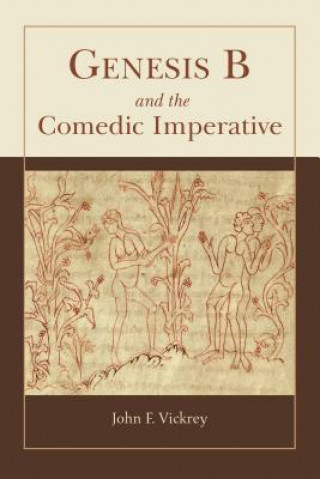
Code: 05160942
Genesis B and the Comedic Imperative
by John F. Vickrey
Readers of Old English would generally agree that the poem Genesis B, a translation into Old English of an Old Saxon (that is, continental) retelling of the story of the Fall, is a vigorous and moving narrative. They would disagre ... more
- Language:
 English
English - Binding: Hardback
- Number of pages: 342
Publisher: Lehigh University Press, 2015
- More about this

618.77 zł

Low in stock at our supplier
Shipping in 10 - 14 days
Potřebujete více kusů?Máte-li zájem o více kusů, prověřte, prosím, nejprve dostupnost titulu na naši zákaznické podpoře.
Add to wishlist
You might also like
-

Vagabond (VIZBIG Edition), Vol. 1
93.91 zł -23 % -

Indian Sex Life
171.08 zł -
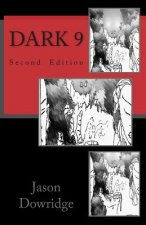
Dark 9
35.68 zł -

Enemies of Progress
94.32 zł -

Masada Complex
87.38 zł -

Court Martial Process
312.12 zł -

Seven Words of Love
98.48 zł -4 %
Give this book as a present today
- Order book and choose Gift Order.
- We will send you book gift voucher at once. You can give it out to anyone.
- Book will be send to donee, nothing more to care about.
More about Genesis B and the Comedic Imperative
You get 358 loyalty points
 Book synopsis
Book synopsis
Readers of Old English would generally agree that the poem Genesis B, a translation into Old English of an Old Saxon (that is, continental) retelling of the story of the Fall, is a vigorous and moving narrative. They would disagree, however, as to the meaning of the poem. Some hold that it reflects an orthodox Christian viewpoint and others claim that it assumes a distinctly unorthodox position in portraying Adam and Eve as morally culpable in their disobedience but merely tricked into disobedience through the wiles of the Devil's agent. The study Genesis B and the Comedic Imperative, examining these contradictory readings, infers that the poem is essentially orthodox, that it demonstrates sufficiently the moral culpability of Adam and Eve, and that it departs from orthodoxy only insofar as it conveys he strong impression that Adam and Even will undertake what amounts to Christian penance, leading them eventually to Heaven. The poem thereby attains the happy ending typical of early medieval Christian narrative. Hence the titular "Comedic Imperative." The inference of orthodoxy follows as a nigh-inevitable conclusion of the interpretation of several motifs: the poem's pervasive allegorical and tropological bent (as first noted by A. N. Doane) and its culturally imbued martiality. The argument depends heavily upon philological inquiry and on examination of prevailing beliefs and attitudes of contemporaneous Frankish society, religious and civil, leading to the reinterpretation of crucial passages. Of these, most notably, is the passage in which Adam, in refusing the Tempter's invitation to eat the fruit, speaks of a false vision of heaven that the Tempter has given as a reward for succumbing to his promises. Other passages that have impeded critical perception of the poem's significance are also examined, such as the notorious micel wundor clause (lines 595-98) and the pseudo-gnomic declaration swa hire eaforan sculon after lybban (623-35). In sum, Genesis B is appropriately included with the other comedic poems in the Junis 11 manuscript.
 Book details
Book details
Book category Books in English Literature & literary studies Literature: history & criticism Literary studies: poetry & poets
618.77 zł
- Full title: Genesis B and the Comedic Imperative
- Author: John F. Vickrey
- Language:
 English
English - Binding: Hardback
- Number of pages: 342
- EAN: 9781611461671
- ISBN: 1611461677
- ID: 05160942
- Publisher: Lehigh University Press
- Weight: 635 g
- Dimensions: 231 × 152 × 23 mm
- Date of publishing: 12. February 2015
Trending among others
-

Best Poems of the English Language
70.97 zł -23 % -

Come Close
15.53 zł -23 % -

Beowulf
49.34 zł -14 % -

I Hate and I Love
15.53 zł -23 % -
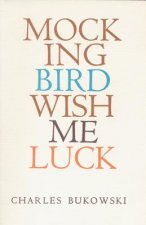
Mockingbird Wish Me Luck
43.25 zł -23 % -
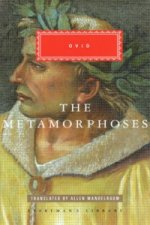
Metamorphoses
75.64 zł -23 % -
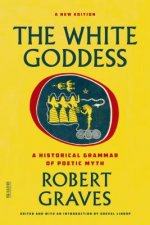
WHITE GODDESS
98.48 zł -12 % -

Selected Poems
79.80 zł -2 % -

And Still I Rise
52.38 zł -23 % -
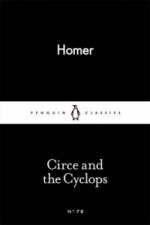
Circe and the Cyclops
15.53 zł -23 % -

O Cruel Alexis
12.99 zł -3 % -
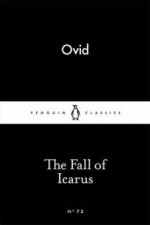
The Fall of Icarus
15.53 zł -23 % -

Complete Poems of Sappho
77.67 zł -11 % -

Odyssey
74.42 zł -

Haiku
47.71 zł -23 % -
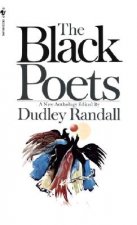
Black Poets
43.96 zł -10 % -

Selected Poems
86.20 zł -4 % -

Prelude
109.86 zł -

On Entering the Sea
81.83 zł -10 % -

Singer of Tales
142.96 zł -

Walter Benjamin and the Aesthetics of Power
290.90 zł -

Hatred of Poetry
68.83 zł -12 % -

Poetry Of Jaroslav Seifert
93.81 zł -

Norton Anthology of Poetry
279.43 zł -

Ode Less Travelled
52.79 zł -15 % -

Selected Poems of Emily Dickinson
44.46 zł -4 % -
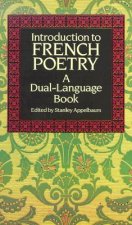
Introduction to French Poetry
56.75 zł -7 % -

Decreation
80.31 zł -23 % -

Letters to a Young Poet
57.56 zł -7 % -
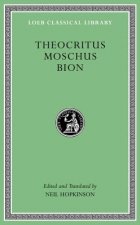
Theocritus. Moschus. Bion
156.97 zł -

Come On In!
70.97 zł -23 % -

Sir Gawain and the Green Knight
43.25 zł -23 % -

Hatred of Poetry
52.38 zł -23 % -

Poetry Notebook
61.73 zł -23 % -

Collected Poems of William Carlos Williams
118.49 zł -5 % -

Collected Poems of William Carlos Williams, 1939-1962
112.80 zł -7 % -

Skeleton Plays Violin
104.68 zł -15 % -

Collected Poems Of Kenneth Patchen
114.93 zł -1 % -

Emily Dickinson
43.25 zł -23 % -

5-7-5 The Haiku Of Basho
202.26 zł -5 % -

American Scream
156.57 zł -

Alexander Pope
24.77 zł -23 % -
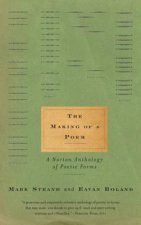
Making of a Poem
81.32 zł -6 % -

Life of a Poet
133.72 zł -

Introduction to German Poetry
45.89 zł -4 % -

How to Read Chinese Poetry Workbook
196.57 zł -

Pagan Portals - Pathworking through Poetry - Pagan Pathworking through poetry: exploring, knowing, understanding and dancing with the wisdom the bard
57.56 zł -7 % -

Night Torn Mad With Footsteps
47.71 zł -23 % -
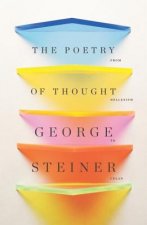
Poetry of Thought
71.27 zł -5 %
safisfied customers
Since 2008, we have served long line of book lovers, but each of them was always on the first place.
Copyright! ©2008-24 libristo.pl All rights reservedPrivacyPoučení o cookies


 21 million books
21 million books Delivery 12.99 zł
Delivery 12.99 zł (32) 444 93 66 (8-15.30h)
(32) 444 93 66 (8-15.30h)